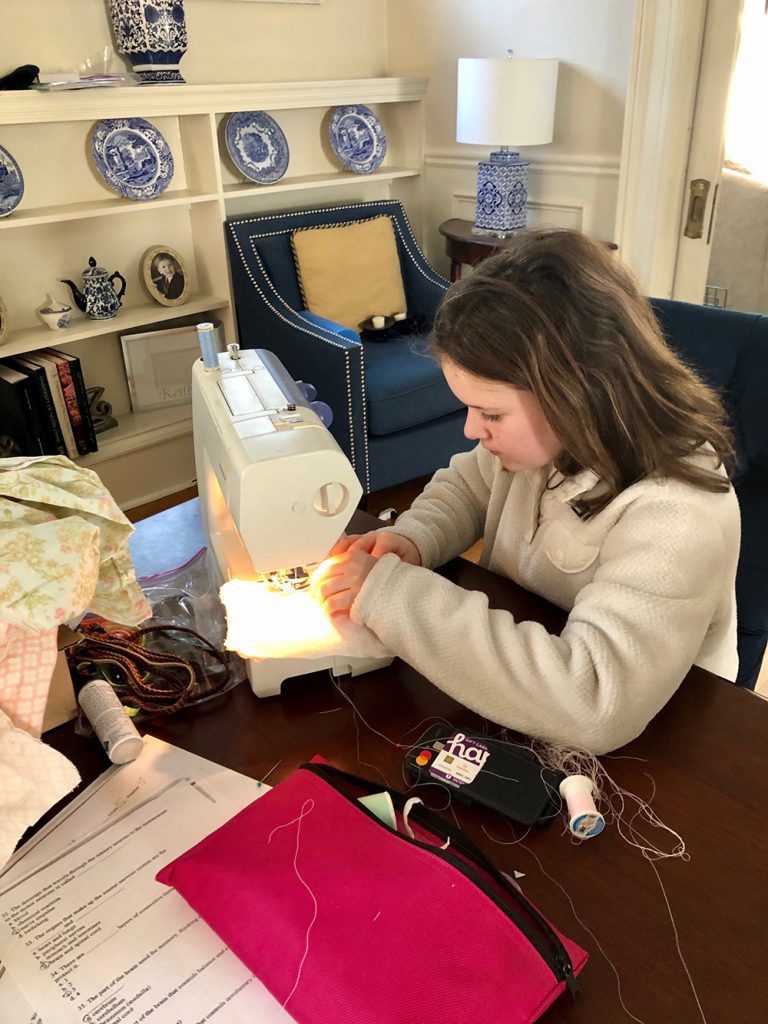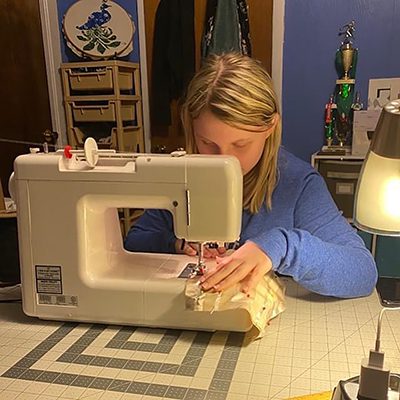
NANTICOKE – “Thanks so much for the pizza! We greatly appreciated it and it was so good!” “It’s so wonderful that Sandy and the youth ministry are doing so much good in these scary times. Love you!”
“Thank you Saint Faustina Youth Ministry. This was so appreciated. God bless you all!”
These are just a small sampling of the expressions of gratitude the Mini/Youth Ministry at Saint Faustina Kowalska Parish has received from first responders and essential workers in its hometown during the coronavirus crisis.
Since the global pandemic crept into our lives two months ago, the Catholic parish youth group well known for its many activities in the community has embarked on a project called “Honoring Our Heroes.” The endeavor has trays of pizza or breakfast treats – depending on the time of day – surprisingly show up at the workplaces of those who valiantly continue to serve the public in the face of the COVID-19 emergency.
“We are so blessed and we wanted to give back to our community,” Saint Faustina Mini/ Youth Ministry Director Sandy Repak said. She explained how the youth group came up with the idea of selecting two groups of essential workers each week and treating them with the free meals.
Staff members at Birchwood Nursing Home and Guardian Elder Care were the first to be honored by the youth ministry’s surprise gesture, followed by the Nanticoke Public Works Department and Nanticoke Medic 5 Ambulance crews.
Repak makes all the deliveries personally, strictly adhering to the safety measures and guidelines put in place to combat the pandemic. The large group of young parishioners who comprise the Saint Faustina Youth Ministry design and create the personalized thank you certificates that accompany each delivery of food, which has been provided at a reduced cost by local eateries including Joe’s Pizza, Marty’s, and Baker Boys.
Included among those who have felt the love and gratitude the effort graciously offers are the Nanticoke police and fire departments and the city’s Code Enforcement Office. Most recently, refuse-removal workers have been recognized and organizers of the project are now setting their eyes on local supermarkets and pharmacies.
According to Repak, youth group members are also preparing posters/cards offering gratitude and inspiration for frontline health care employees at three area hospitals. “ We will continue each week surprising groups of our essential workers,” she said.
“As we continue to pray for all of them to stay safe and healthy.”

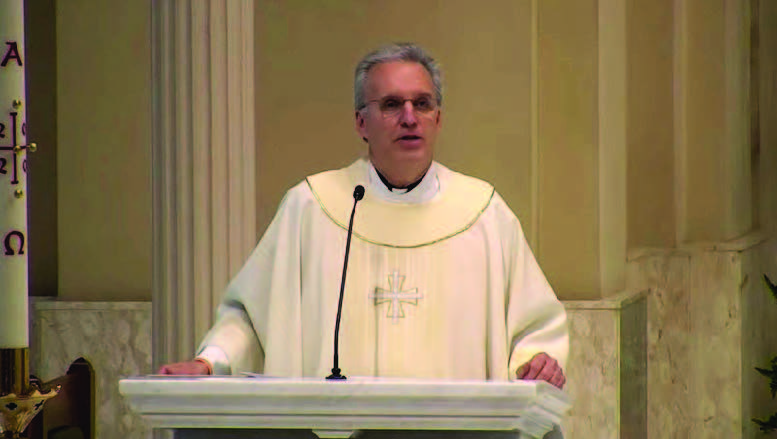 “God is calling, even in the midst of a global pandemic.”
“God is calling, even in the midst of a global pandemic.”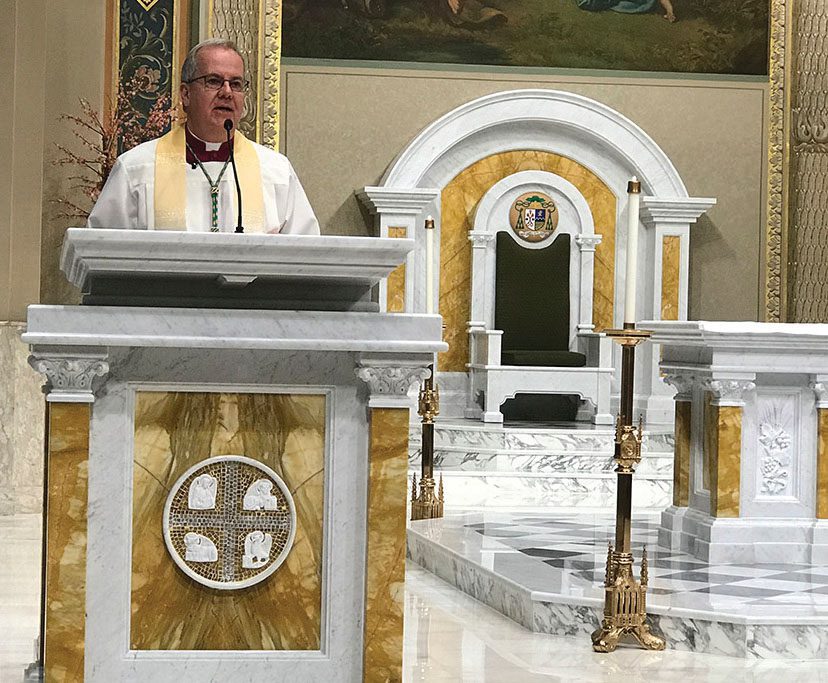

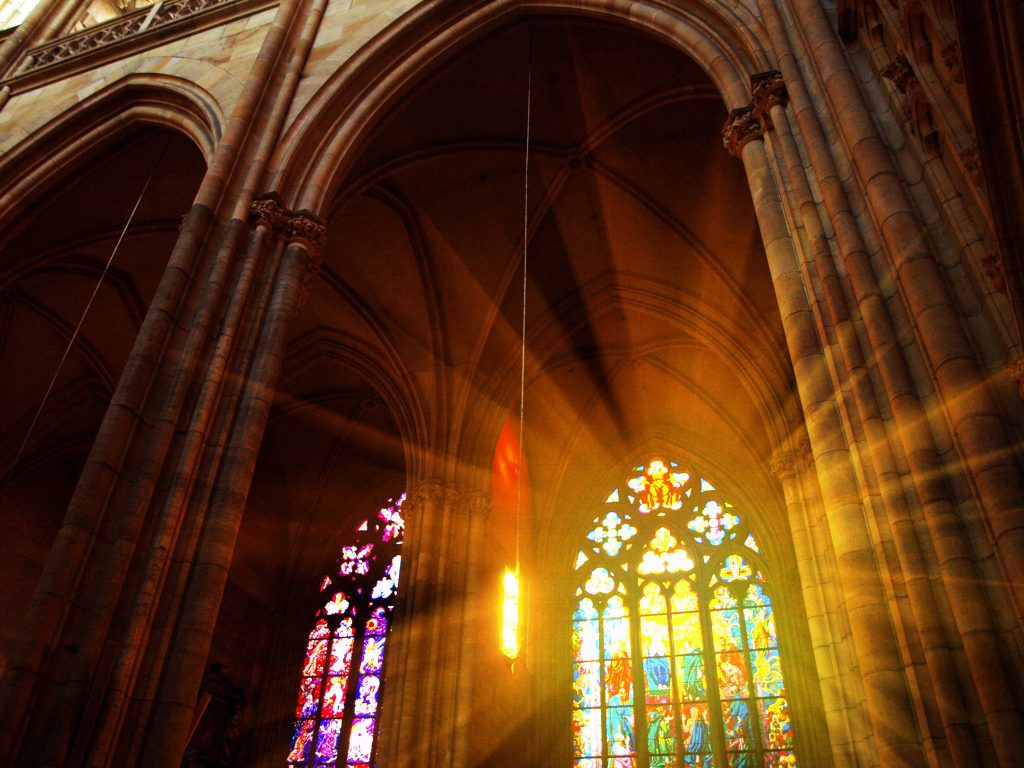
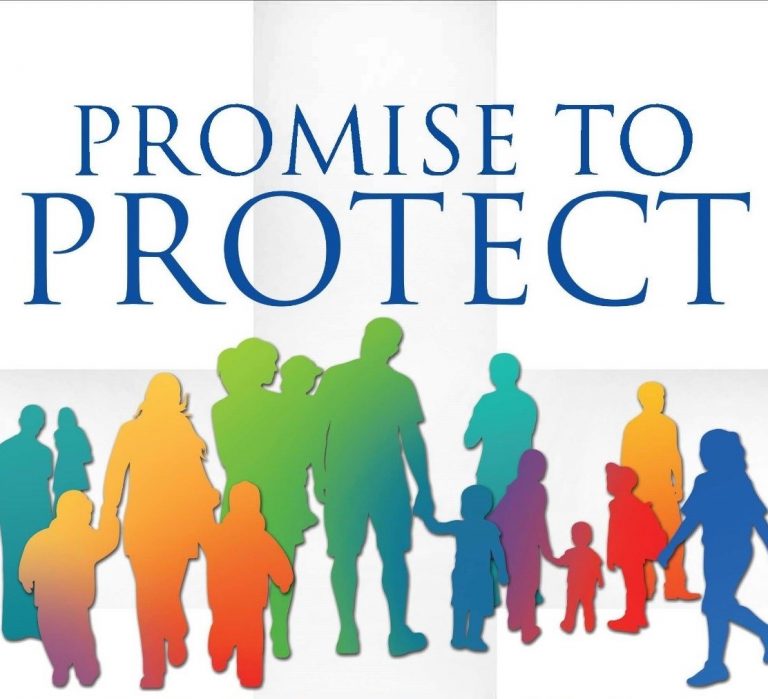 I begin this message with a wish for continued safety and good health. In these incredible times we are obligated to focus on this immediate crisis. But with God’s help we will slowly resume some sense of normalcy.
I begin this message with a wish for continued safety and good health. In these incredible times we are obligated to focus on this immediate crisis. But with God’s help we will slowly resume some sense of normalcy.

